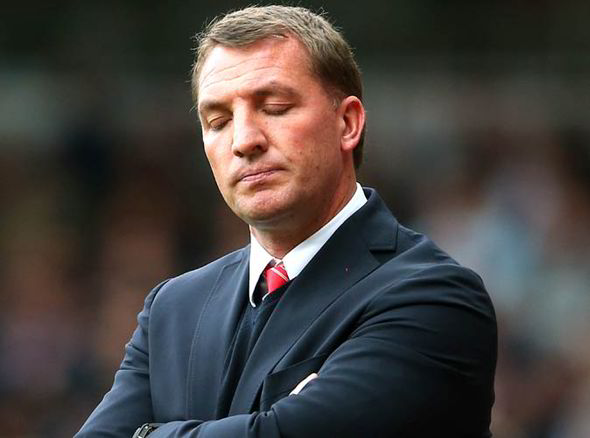The Premier League coaching carousel is in full swing now, with five managers already sacked and a few more seemingly days away. Don’t tell them we’re only 60% of the way through the season.
Every team expects a new name and face to change everything about their club. Whether it’s returning them to former glories or keeping them in the top division, fans believe a well-known or exciting new manager will hand deliver them all their hopes and dreams like a child looking up his chimney on Christmas Eve.
Even the world’s top clubs fire great coaches in the hopes of proving true the strange maxim “new is always better.” Although Brendan Rodgers was probably on borrowed time from the start of the season, one can point to Jose Mourinho and Rafael Benitez as prime examples. After two successful seasons, including a league title last year, Chelsea owner Roman Abramovich handed over the keys of the club to Mourinho as they tried to build a Chelsea dynasty together. Before Christmas he was gone, despite many of the players’ fall from grace (Hazard’s Real Madrid/subversion saga, Fabregas’s and Ivanovic’s disappearing acts, etc.). Perez canned Benitez after only half a season in charge and with his team third in the table, only to replace him with Zinedine Zidane, a managerial neophyte. Even the two teams from Manchester are embroiled in controversy despite being top-4 favorites and legitimate title contenders. City seem ready to drop Pellegrini as soon as Guardiola signs on the dotted line, while van Gaal is the overwhelming betting favorite to become the next sacked Premier League manager. But will these teams fare any better with new leaders?
I’d like to start this investigation by looking at Liverpool, mostly because out of all the top clubs, Liverpool fired their manager the earliest and thus we have had at least some time to see change (although you certainly could make the argument Liverpool are not a top club and haven’t been for a while now). Jurgen Klopp’s start feels eerily reminiscent of the entire Brendan Rodgers era. A series of 0-0 draws and 1-0 victories punctuated by occasional barn burners of all types has given Liverpool fans everywhere hope that Klopp will figure it out and combine all the good aspects of their inconsistent play. But didn’t we wait three years for Rodgers to do the same? Save for the latter half of the 2013-2014 season, in which Luis Suarez, Daniel Sturridge, and Raheem Sterling ripped off 11 straight wins to bring Liverpool to second place, Rodgers’s entire career there was filled with the same kinds of results we’ve seen under Klopp. And, Liverpool were 10th in the Premier League with a -2 goal differential when Rodgers was fired; now, they are 9th with a -3 goal differential. The same problems are plaguing them too: high possession numbers and effort from a midfield lacking in quality, expensive, burdensome players who don’t fit in the team, shaky defensive and goalie play, and an inability to score goals. The only hope that Klopp can save the team is through his amazing transfer record. But didn’t we say the same thing after Rodgers bought Sturridge and Coutinho dirt cheap back in 2011?
If Real Madrid can be excused for their actions (they essentially have one if not two new managers each season), Chelsea and Manchester United are curious cases. While in the past Abramovich had the same itchy trigger finger as Real, this summer both he and Mourinho seemed eager about the prospects of turning Chelsea into a perennial and stable superpower in the mold of Alex Ferguson’s United. As it turns out, not even eight league titles (three at Chelsea) and two Champions League trophies do not earn enough faith to last through less than half a season in 16th place. Speaking of United, it is simply shocking to see them involved in managerial controversies. After Alex Ferguson’s retirement from 26 years and 30 trophies, and David Moyes’s ill-fated season (unfortunately for him, he was a blatant place-holder with the impossible task of replacing a legend), United turned to van Gaal for some stability and respectability, and that is exactly what they got. With the shell of a team that Ferguson left, no one expected van Gaal to complete miracles, but he returned them to Champions League football and built a team worthy of competing for the title, even if they were never favorites. Now in fifth place, he currently has 4/7 odds of becoming the next unemployed (Sky Sports). What happened?
One can point to the hundreds of millions United has spent and say they should expect to be title favorites, but the truth is dynasties are never built overnight. One major fault of the transfer window is the obsession most fans have with it. While it’s incredibly exciting to see your favorite club buy all their top targets and spending is a great way to show commitment to success, it’s downright impossible for players who have never played together before to immediately come in and dominate. Arsenal have consistently made top-4 for 15 years without dipping too much into transfers, and Ferguson’s United won record titles with the same formula. Teams need time to implement their visions, but if managers and ideologies switch every year or so, you end up with a bag of mixed parts that look good on paper but can’t deliver on the pitch (see: Liverpool). United is in the same danger if they move on from van Gaal too soon or appoint a new manager with a contrasting philosophy.
If there is hope for some of these clubs to see the light, it belongs to Barcelona and Bayern Munich. These two teams have participated in all but one Champions League Final since 2008, and they’ve done it through their consistent visions. Although they have also changed managers, they’ve stayed on for longer and are all carefully chosen. Before the last manager even leaves the building, they have a plan to replace him (especially Bayern). And even though the turnover, their transfer records have reflected a singular style of play and type of player. With their previous patience and organization, I had hoped Manchester United would follow a similar path. Although it’s not too late for them, they are in extreme danger of repeating the mistakes of their less successful competitors.







